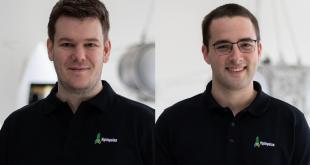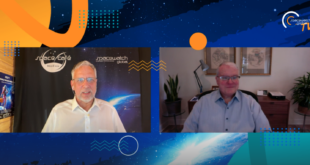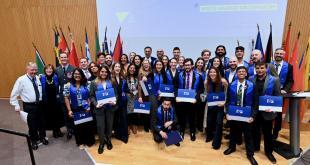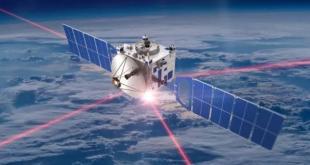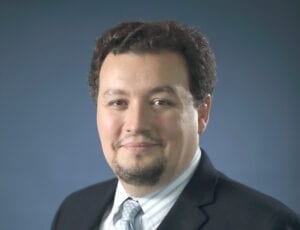
by Luisa Low
During this week’s Space Café episode, SpaceWatch.Global publisher, Torsten Kriening brought his focus back to Switzerland, interviewing Alexandre Vallet, who is the Chief of the Space Services Department, which is part of the Radio Communications Bureau at the International Telecommunication Union (ITU).
Based in Geneva, the ITU is one of the United Nations’ specialised agencies, facilitating the exchange of information and strengthening communications networks between countries. Their aim is to bring modern communication technologies to all people, everywhere in an efficient, safe, easy and affordable manner.
In his role at the UN and as a trained radio-frequency engineer with a career spanning two decades, Alexandre’s motto is that outer space knows no borders. His team works to ensure that satellite operators can use radio frequencies to deliver their services, providing emergency telecommunications in times of emergency and crisis, as well as advising countries and companies on regulation and policy.
Why is international radio regulation so important?
The United Nations Treaty on Outer Space regulates what nations can and cannot do in space. The treaty, which came into force in 1967, does not just apply to physical infrastructure but stipulates that all activities in outer space must comply with and be conducted in accordance with international law.
That means telecommunications and radio are highly regulated, being central facets to space infrastructure.
Alexandre’s department also enforces mechanisms that coordinate the operation of satellites. Without this governance and balance, he says, there would likely be satellite interference.
“One very important thing to understand is that satellites share frequencies, they don’t each have a single frequency dedicated to them. This is how they have access to so much spectrum.”
The 2015 “gold rush”: a sudden influx of newcomers requires a balancing act
From its inception until the early 21st Century, the space sector was dominated by very few large-scale operators, which meant Alexandre’s team only liaised with experts from organisations who already had a deep understanding of compliance and regulation.
That all changed in about 2015. From what were previously agreements and discussions “between experts”, the massive influx of smaller outfits completely changed the nature of the ITU and Alexandre’s work.
His focus now includes educating and working with new players to understand and comply with regulation, a role that is resource-intensive.
The age-old saying that technology tends to move faster than regulation is apt for describing the pace at which the sector innovates. This, coupled with small startups frequently becoming overwhelmed by compliance, requires Alexandre’s team to manage a delicate balancing act.
“We need to balance the needs of both the newcomers and incumbents in the industry.”
“If you’re waiting for change, you are quite eager to get it quickly. If you are not waiting for it, you are quite eager that it doesn’t happen too often.”
To listen to Alexandre Vallet’s insights into the space industry, you can watch the full programme here:
Space Cafe is broadcast live each Tuesday at 4 pm CEST. To subscribe and get the latest on the space industry from world-leading experts visit – click here.
*Luisa Low is a freelance journalist and media adviser from Sydney, Australia. She currently manages Media and Public Relations for the University of Sydney’s Faculty of Engineering.


